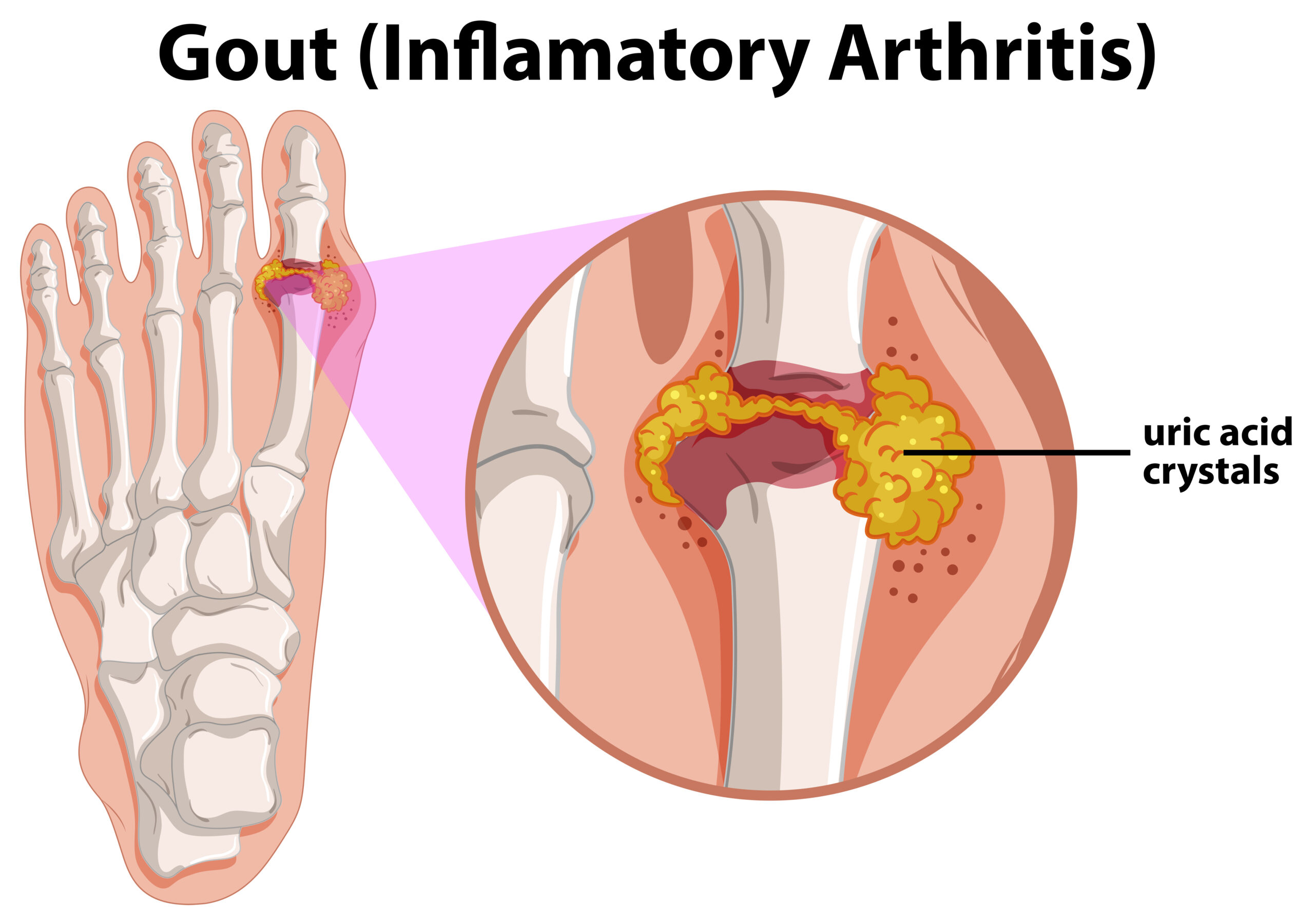European Foot and Ankle Clinic
We can help you! For your first evaluation and resolution to your concerns please visit us in our Hallandale Beach FL location. We speak English, Spanish, Polish and Russian.

Gout, Inflammatory Arthritis
Gout is a type of inflammatory arthritis, caused by a build-up of uric acid crystals in the joints. It can affect the hands, elbows, knees and wrists but most commonly it affects the feet, especially the big toe.
This painful inflammatory joint condition has traditionally been thought of as a “rich person’s disease” for its associations with rich food and strong drink — but the truth is more complex. Gout can affect anyone, and when it does, it commonly strikes the joints of the toes and feet.
Fish and shellfish, organ meats, and certain vegetables and grains (including alcohol) contain purines, an organic compound that is not harmful on its own. But when your body breaks it down, it turns into uric acid, which can be harmful if not expelled.
Normally, you get rid of uric acid when you urinate, but if you have too much in your blood, it crystallizes and settles in your joints. These sharp shards can find a home in any of your joints, but they typically land in your big toe, where it’s far from your heart and therefore not as warm as other joints, as uric acid likes a cool and steady temperature.
Symptoms of gout are pain, redness, swelling, tenderness to touch, and heat. Men are more likely to have gout than women. Obesity, genetics, high blood pressure, consuming high levels of alcohol, and eating foods rich in purines are risk factors.
Symptoms
- Intense Joint Pain – Usually around the large joint of your big toe, and it most severe within the first four to twelve hours
- Lingering Discomfort – Joint discomfort may last from a few days to a few weeks
- Inflammation and Redness -Affected joints may become swollen, tender, warm and red
- Limited Range of Motion – May experience a decrease in joint mobility
Treatment usually involves medications to manage pain and inflammation during attacks, as well as medications that help lower uric acid levels in the blood to prevent future flare-ups. Lifestyle changes like dietary adjustments, limiting alcohol intake, and staying hydrated can also help manage gout.
Always consult a podiatrist if you have any foot discomfort. Consult with our podiatrists in Hallandale for a personalized treatment plan tailored to your needs.

